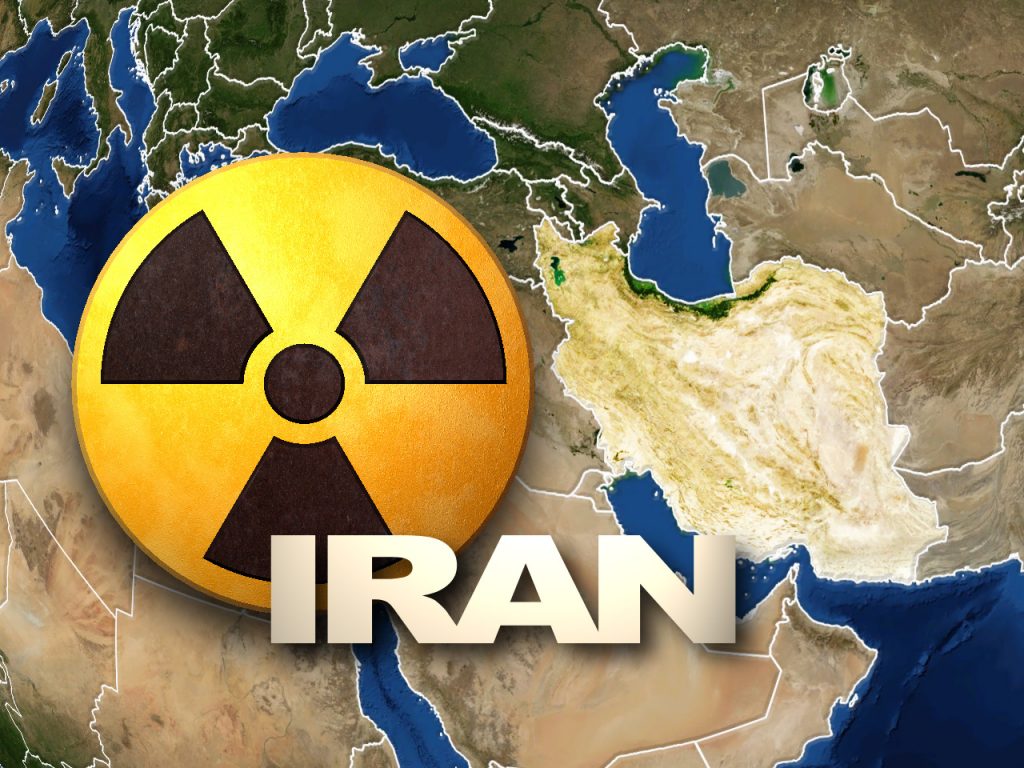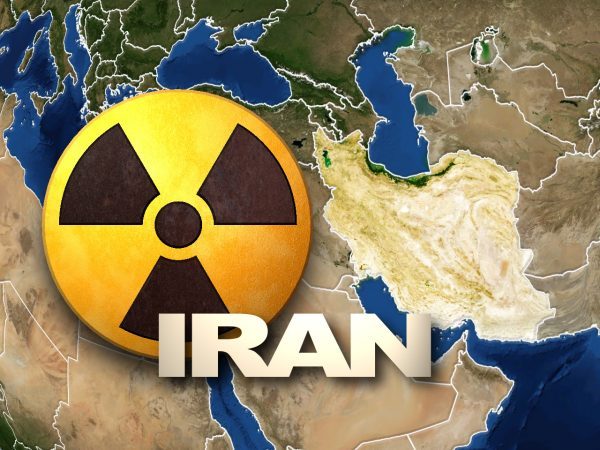By Reuel Marc Gerecht

Although President Biden has demanded that Iran reenter the Joint Comprehensive Plan of Action before it receives economic relief, he will probably soon start green-lighting billions of dollars in assistance and lifting sanctions. Tehran will undoubtedly remain in violation of the atomic accord and the Nuclear Non-Proliferation Treaty (NPT), to which Iran is a signatory. Biden will do so for the same reason that Barack Obama repeatedly gave ground in negotiations with the Islamic Republic: fear of risking war or publicly conceding a nuke to the clerical regime. Iran’s supreme leader, Ali Khamenei, who has an autarkist streak and despises the United States, has been ratcheting up the pressure.
Tehran has increased the quantity and quality of its enriched uranium and started to construct and deploy advanced centrifuges faster than what the JCPOA allowed. The clerical regime is also preventing the United Nations’ International Atomic Energy Agency from accessing Iran’s nuclear facilities, which is in violation of the NPT. And for the fourth time under the Biden administration, an Iran-guided Shiite militia has rocketed an American base in Iraq. The president responded to one of the attacks with a limited strike in Syria.
Khamenei has been point-blank — more so than he often is when he wants to give himself wiggle room: “We have no sense of urgency, we are in no rush to see the United States return to the JCPOA; this has never been a concern for us. . . . What is our entirely reasonable demand is the lifting of sanctions; this is the usurped right of the Iranian nation.”
Although senior officials in the administration are loath to say this publicly, they need the credible threat of U.S. military power and the pain of sanctions to drive the supreme leader back into negotiations. As punishing as sanctions had been for two and a half years under Donald Trump’s maximum-pressure campaign, they did not crack the fortitude and faith of Iran’s ruling elite.
For Khamenei and his security forces, the decisive moment came in the winter of 2019 when they crushed nationwide, anti-regime protests, initially provoked by a rapid increase in fuel prices. By 2020, after using machine-gun fire against the poor, the supreme leader had overcome three years of increasingly severe demonstrations. In his mind, he’d overcome American provocations.
Addicted to arms control, with a uranium clock ticking, dreading the thought of another conflict or Iranian-orchestrated violence against U.S. forces, President Biden is probably meditating most on this: How can his administration choreograph nuclear extortion as a mutual de-escalation that makes it seem Tehran has given something substantial for the billions of dollars that the White House will release? The Europeans, especially the French, have been similarly focused, serving as a middleman in an effort to resuscitate what they regard as a diplomatic triumph.
Philosophically, the president is in a worse position than his former boss. President Obama was averse to the use of military and economic coercion, seeing “engagement,” especially Western commerce, as a catalyst for the clerical regime’s moderation. He certainly appeared to believe that if Washington were nicer, Tehran would reciprocate. The United States could make concession after concession in negotiations — about sunset clauses, the destruction of existing centrifuges, the development of more-powerful and easier-to-hide centrifuges, intrusive inspections, undisclosed nuclear activities, ballistic missiles, and regional aggression — and evolution could well prevent the worst-case scenarios, which Obama probably wasn’t in any case prepared to stop militarily. President Biden doesn’t appear that naïve.
Since Obama’s nuclear outreach to Khamenei in 2012, we have seen the Islamic Republic’s official emissaries take the lead in the slaughter of hundreds of thousands of Sunni Syrians; undertake an assassination campaign against expatriate dissidents and try to bomb an opposition conference outside Paris, which many Americans attended; and savagely crush ordinary Iranians protesting. Some of Obama’s people who are now Biden’s people could wince when Iran’s depredations in Syria were paired with sanctions relief for the theocracy. Liberal internationalists, and the Biden administration may be the last gasp of this species, have a conscience. They are not blind to the problematic nature of the theory that the Islamic Republic would be on the cusp of Thermidor if it were not for “hardliners” in the United States.
Secretary of State Antony Blinken has conceded that the JCPOA was far from what former secretary of state John Kerry maintained it was, an agreement that forever shut down all pathways to a bomb. If a follow-on agreement needs to be “longer, stronger, and broader,” then the JCPOA was, at best, a stepping-stone. If the administration is successful in selling a JCPOA 2.0 in Washington, the president will gain the support of congressional Democrats who opposed the deal in 2015, and he might even crack the Republican consensus, which, so far, has remained solidly against any U.S. return to the nuclear accord. Some Republicans, as in 2015, may want to find a diplomatic way to escape the American–Iranian confrontation, to see hope on the desert horizon even if it’s a mirage.
But how President Biden takes another step with Tehran isn’t clear — unless the administration just intends to give way to Iranian demands, including lifting sanctions linked to terrorism, missile proliferation, and the depredations of the Islamic Revolutionary Guards, while using tough rhetoric to camouflage its retreat. To wit: Obama’s policy with a Senator Tom Cotton voiceover.
Iran’s supreme leader certainly isn’t going to accept more restrictions on his industrial-size atomic aspirations after the United States lifts sanctions. Iranian Shiite imperialism and the nuclear-weapons program aren’t exercises that financially have made any sense; they do give satisfaction and security to religious revolutionaries who still have a cause. Blinken, who doesn’t have the kumbaya instincts and hubris of Kerry, may know this.
President Trump never really tried to effect a containment policy against the Islamic Republic, where Washington doggedly tries to roll back the clerical regime’s influence throughout the Middle East, patiently aggravating the theocracy’s internal weaknesses. And he unwisely premised his sanctions regime on obtaining a new, more comprehensive, A-bomb-foreclosing agreement — a fantasy while Iran remains the Islamic Republic. But containment would draw redlines. Billions of dollars wouldn’t be transferred for a short, weak, and narrow nuclear deal. Mass slaughter and terrorism wouldn’t be rewarded.
And the president of the United States could reply to the supreme leader: “I don’t need to return to the JCPOA, either.” In the Middle East’s endless hard-power contests, that would be a momentous next step.
Reuel Marc Gerecht is a senior fellow at the Foundation for Defense of Democracies,
YAHOO NEWS


Leave a Reply
You must be logged in to post a comment.